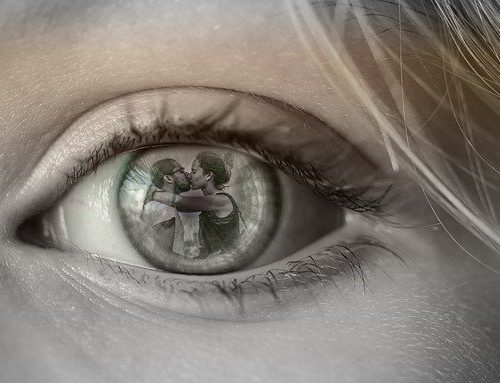 There is a bottom line in every relationship, perhaps several bottom lines. A “we won’t go there” limitation is part of the emotional contract partners make with one another. But what happens when you do “go there”? In the heady beginning of a relationship you may be convinced that it will never happen to you and your partner, but there are many “deal breakers” that can happen in the course of a relationship:
There is a bottom line in every relationship, perhaps several bottom lines. A “we won’t go there” limitation is part of the emotional contract partners make with one another. But what happens when you do “go there”? In the heady beginning of a relationship you may be convinced that it will never happen to you and your partner, but there are many “deal breakers” that can happen in the course of a relationship:- Basic disagreements. Surely you talked over all the important stuff at the beginning of your relationship, right? The problem is that new issues arise as you live your lives. Do you want children? How many? Will one of you stay home with them? All worked out in advance, but suppose you have trouble conceiving. What steps are you willing to take? Do you adopt? If you find you can’t come to an agreement, your basic differences could drive you apart.
- Withdrawal. For most couples, togetherness is the whole point, but for some individuals it’s too much. Adults who were abused or neglected in early life can have particular problems with closeness. They withdraw to protect themselves from an attachment that may vanish. Alternatively, they may demand closeness so obsessively that their partner withdraws.
- Breaking trust. There are many ways partners in a relationship can disappoint one another. Relationships are made up of expectations, not all of them explicit. For one partner, lying can be an unforgivable breach. For the other a little white lie now and then is a tool to smooth the rough patches in a relationship. If the disconnect is more serious, the loss of trust can endanger the relationship if not healed.
- Infidelity. When it comes to breaking trust, infidelity is a whole different level. In casual “what if” conversations many of us immediately list infidelity as a definite deal breaker. How could you ever trust your partner again? It’s estimated that a quarter of relationships eventually experience infidelity. Yet, many couples do decide to work at surviving this great betrayal.
- Abuse. It needn’t be bruises and broken bones. Abuse can exist at many different levels, from disrespect to damaging beloved possessions to deliberate financial damage. However it is expressed, abuse is all about seizing and maintaining control over another. Asked at the beginning of a relationship if you would put up with abuse, the immediately answer is a resounding No, but abuse can develop so slowly that it’s not immediately obvious as a deal breaker. Until it is.
No relationship is free of issues. If not one of those above, you’ll likely come up with a deal breaker of your own. The problem with deal breakers is that they don’t just go away on their own. You may try to ignore or bury them but they are still there seeping infection into your relationship.
A skilled therapist can help you identify what’s broken in your relationship and guide you through the skills that can help you move beyond it.
- Communication is the strongest tool toward a strong relationship. Shouting louder than your partner is not a communication skill; expressing your own feelings and listening to your partner are.
- Understanding isn’t always easy, but it is vital. You both came from different life experiences that are coloring what’s going on with you now. This is the value of disagreements in a relationship: you will learn things about each other you didn’t know before and will be able to put yourself in one another’s shoes.
- Problem-solving skills will serve you and your relationship for a lifetime. This isn’t the only time you’re going to be here. New issues will arise, old issues will re-emerge. Skills like identifying the problem, identifying a solution that works for both of you, and working together to reach that goal can bring your relationship back to strength and happiness.
Click here for more information on Couples Therapy.




